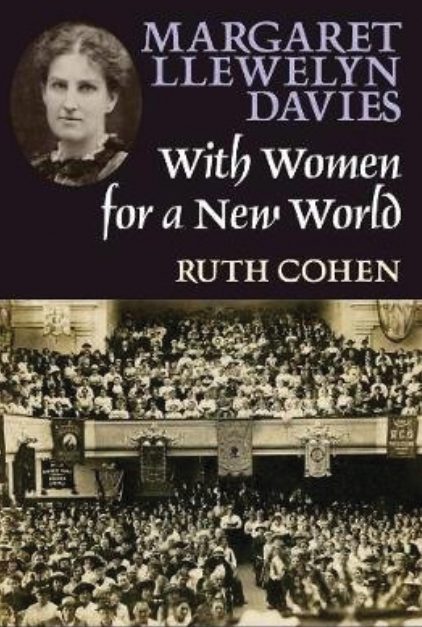Ruth Cohen looks at the achievements of Margaret Llewelyn Davies and the Women’s Co-operative Guild

One hundred years ago, in 1922, something quite unheard of took place at the UK’s annual Co-operative Congress. A banner headline in the then-weekly Co-operative News trumpeted, “Congress enthrones the woman with the basket”, explaining that this would be the “First Congress held under the Chairmanship of a Woman President”.
For Co-operative leaders to have invited a woman to chair such a prestigious event was quite remarkable, when only five years earlier British women had still been denied even the right to vote.
The proposed chair was to be Margaret Llewelyn Davies, the radical leader of the Women’s Co-operative Guild who had recently retired after more than 30 years. Margaret made a point of accepting the honour not for herself, but on behalf of “that host of women without whom she would have been nothing”. Although she was experienced and well known within the movement, the task of chairing a three-day meeting of over 1,700 delegates, mostly men, could still have been daunting. But Margaret rose to the occasion: she pulled no punches and exerted her authority with aplomb, dealing firmly with the occasional “hubbub”, Indeed, a wry commentary in the News described her as “the best man of the conference!”
Related: Co-op movement gears up for a series of celebrations and centenaries
This was a far cry from the opposition the Women’s Co-operative Guild had faced when it was first established in 1883. Back then, its first meetings provoked comments like “Let them sit at home!” ‘Who’s to mind the children?’”. Most Guildswomen were home-based wives and mothers, and although theoretically there was gender equality, in practice men ran the movement at all levels – even though it was women who did the shopping at the co-op stores. Some local co-operative societies still did not allow male members’ wives to join in their own right.

Guildswomen struggled for equality for the next forty years, and more. With Margaret Llewelyn Davies at the helm, from the 1890s on the Guild developed into a unique, forward-looking public voice for working-class women. As co-op movement historian G. D. H. Cole concluded, the Guild became a “powerful progressive force’” within co-operation, campaigning determinedly for ethical trading, better wages for women, equal representation at all levels of the movement, and more. It also fought vociferously for vital social reforms, notably votes for women, divorce law reform and decent maternity provision. Not infrequently, this brought conflicts with the co-operative leadership of the time. But with the enormous political and social changes during and after World War I, the movement was in a different position and there was a reconciliation, cemented by the unprecedented Congress invitation to Margaret Llewelyn Davies in 1922. As one woman declaimed, this was truly a “crowning glory” for co-operative women.
The Guild continued to expand between the wars, keeping up its work for co-operation and its forward-looking campaigning for social reforms – including, controversially, the legalisation of abortion. It was outspoken in its pacifism, and initiated the widespread scheme of wearing white rather than red remembrance poppies. However, from World War II onwards, massive social change led to major shifts in co-operation and the Guild itself eventually closed in 2016.
Nowadays, women can be found at all levels of the UK co-op movement, whether as chief executives of apex bodies or major retail societies, Co-operative Party MPs, or as key figures in other parts of the movement. Looking back to 1922, we can see the 1922 Congress as a symbol of co-operative women’s past struggles and achievements, and a reminder of their vibrant history of campaigning for equality and social justice – a campaign that is still relevant today.

- Ruth Cohen’s biography: ‘Margaret Llewelyn Davies: with women for a new world’ was published in 2020 by Merlin Press
